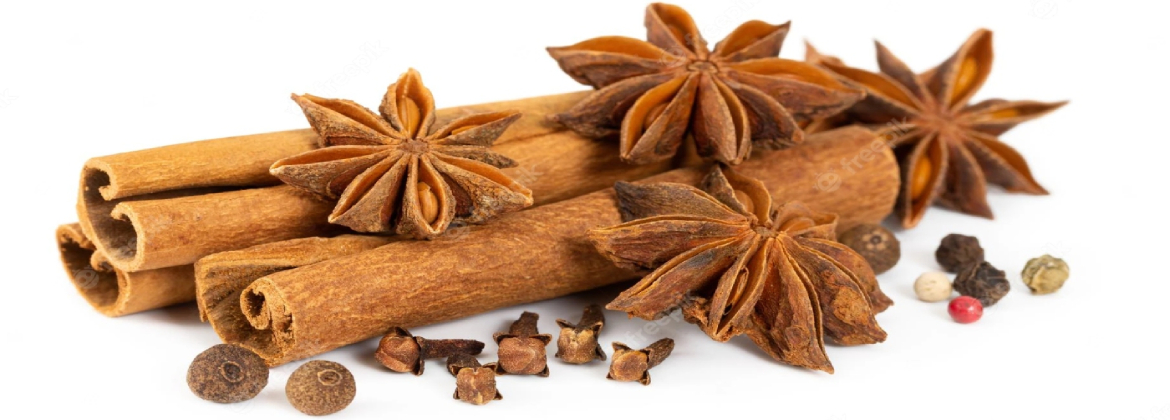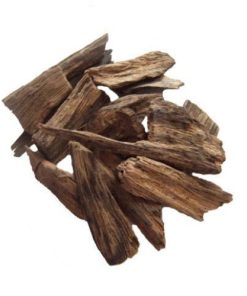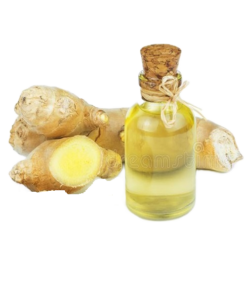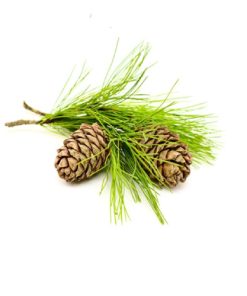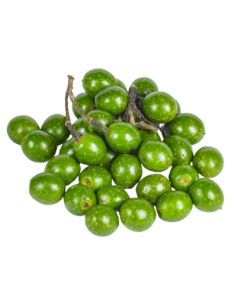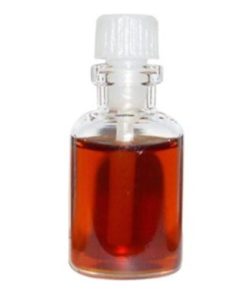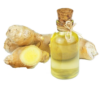CASSIA LEAF OIL
Specifications:
Country of Origin: Vietnam
Extraction Method: Steam Distilled
Plant Part use: Leaf, branch, broken bark
Cassia Essential Oil properties:
Appearance: Clear, Mobile Liquid
Colour: Red – Brown
Specific gravity at 20℃: 1.045 – 1.105
Refractive Index at 20℃: 1.600 – 1.615
Optical rotation at at 20℃: -3 to +6
Cinnamic aldehyde: Min 75%
35 $
Plant Description
Cassia oil is extracted from the leaf, branch & twin of Cinnamomum cassia (also known as C. aromaticum and Laurus cassia) of the Lauraceae family. It is also known as false cinnamon and cassia lignea.
Cassia is native to Vietnam and is also known as cassia bark or Chinese cinnamon. This slender, evergreen tree grows up to 20 meters (65 feet) high, with thick, leathery leaves and small white flowers. The flowers are followed by single-seeded berries the size of small olives. Cassia bark is widely used to flavor curries, in baked foods, candies and soft drinks.
Cassia oil is extracted from the leaves, bark, twigs and stalks by steam distillation.
Cassia Essential Oil properties:
Appearance: Clear, Mobile Liquid
Colour: Red – Brown
Specific gravity at 20℃: 1.045 – 1.105
Refractive Index at 20℃: 1.600 – 1.615
Optical rotation at at 20℃: -3 to +6
The main chemical components of cassia oil are cinnamic aldehyde 70-90%, cinnamyl acetate, benzaldehyde, linalool and chavicol.
Cassia Essential Oil uses:
Cassia as a dried herb can be useful for digestive complaints such as flatulence, colic, dyspepsia, diarrhea and nausea. It can also be used for colds, influenza, fevers, arthritis and rheumatism.
– Tonic from Brain: Cassia is known to stimulate and boost the activity of brain hence giving relief from nervous tension and memory loss.
– Purifies Blood: The unique properties of Cassia help to clean the impurities of blood and subsequently reduces and removes pimples.
– Improved Blood Circulation: Cassia Oil has a unique blood thinning compound which reduces the viscosity of blood making it easy to circulate.
– Stops bleeding: This essential Oil when applied on wounds stops bleeding and helps the wounds to heal faster.
– Indigestion: Cassia not only adds flavours and aroma to food it also helps the food to get digested effectively.
– Other therapeutic properties of Cassia oil: Relief from respiratory problems, relief from menstrual discomfort, increases secretion of milk, mouth freshener, diuretic etc.
Precautions:
Cassia oil should not be used on the skin as it is a dermal irritant, dermal sensitizer and is a mucus membrane irritant. It must also be avoided in pregnancy.
Specificatios
SPECIFICATIONS
Product name |
CASSIA LEAF OIL |
Botanical Source |
Oleum Cinnamomum |
Origin |
Vietnam |
Batch No. |
QUE0524 |
Part use |
Leaves |
Method |
Steam distillation |
Manufacturing date |
05/2024 |
Best before |
05/2027 |
Cas No. |
8007-80-5 |
FEMA: |
2258 |
No |
Parameter |
Specifications |
01 |
Appearance |
Only liquid, Dark Reddish Brown colour, Typical odour of Cassia |
02 |
Identification |
Cassia Oil |
03 |
Solubility |
Soluble in alcohol and other Organic solvents & Insoluble in water |
04 |
Specific Gravity at 20°C |
1.045 – 1.105 |
05 |
Refractive Index at 20°C |
1.600 – 1.615 |
06 |
Optical Rotation at 20°C |
-3° to +6° |
07 |
Main Constituents |
Aldehyde cinnamic min 70% |
Shelf life: Min 3 years from date of manufacture.
Storage: Store in airtight containers in cool & dry place away from light & heat.
Caution: Possible skin sensitivity. Keep out of reach of children. If you are pregnant, nursing, or under a doctor’s care, consult your physician. Avoid contact with eyes, inner ears, and sensitive areas.
MSDS
MATERIAL SAFETY DATA SHEET
(according to Regulation (EU) No. 1907/2006)
Product name: Cassia Leaf Oil
1. IDENTIFICATION OF SUBSTANCE/PREPARATION & COMPANY.
Product name: Cassia Leaf Oil
Manufacturer/Supplier: Vietnam Essential Oil., JSC
Add: Bai Dai Village, Tien Xuan Commune, Thach That Dist, Ha Noi City, Vietnam
Emergency telephone: +84 903561868
Emergency Contact: Mr. Peter Tron
2. COMPOSITION / INFORMATION ON INGREDIENTS.
Definition/Botanical Origin: The Cassia Leaf Oil obtained by steam distillation from freshly cut leaves and twigs, bark of Oleum Cinnamomum tree original from Vietnam.
Composition: 100% pure & natural
CAS No: 8007-80-5
FEMA: 2258
INCI Name: Oleum Cinnamomum Oil
3. HAZARDS IDENTIFICATION.
This product is not hazardous. Not dangerous for the environment.
H304 May be fatal if swallowed and enters airways
H315 Causes skin irritation
H317 May cause an allergic skin reaction
H319 Causes serious eye irritation
4. FIRST-AID MEASURES.
Inhalation: Remove from exposure site to fresh air. Keep at rest. Obtain medical attention.
Eye contact: Rinse immediately with plenty of water for at least 15 mins. Contact a doctor if symptoms persist.
Skin contact: Remove contaminated clothes. Wash thoroughly with soap & water, flush with plenty of water. If irritation persists, seek medical advice.
Ingestion: Rinse mouth out with water. Seek medical advice immediately.
Other: When assessing action take Risk & Safety Phrases into account (Section 15)
5. FIRE FIGHTING MEASURES.
Extinguishing media Use CO2, Dry Powder or Foam type Extinguishers, spraying extinguishing media to base of flames. Do not use direct water jet on burning material.
Special measures: Avoid vapour inhalation. Keep away from sources of ignition. Do not smoke. Wear positive pressure self-contained breathing apparatus & protective clothing.
Extinguishing procedures: Closed containers may build up pressure when exposed to heat and should be cooled with water spray.
6. ACCIDENTAL RELEASE MEASURES.
Personal precautions: Avoid inhalation & direct contact with skin & eyes. Use individual protective equipment (safety glasses, waterproof-boots, suitable protective clothing) in case of major spillages.
Environment precautions: Keep away from drains, soils, surface & groundwaters.
Cleaning up methods Remove all potential ignition sources. Contain spilled material. Cover for spillages: with an inert or non-combustible inorganic absorbent material, sweep up and remove to an approved disposal container. Observe state, federal & local disposal regulations.
7. HANDLING & STORAGE.
Precautions in handling: Apply good manufacturing practice & industrial hygiene practices, ensuring proper ventilation. Observe good personal hygiene, and do not eat, drink or smoke whilst handling.
Storage conditions: Store in tightly closed original container, in a cool, dry & ventilated area away from heat sources & protected from light. Keep air contact to a minimum.
Fire protection: Keep away from ignition sources & naked flames. Take precautions to avoid static discharges in working area.
8. EXPOSURE CONTROLS/PERSONAL PROTECTION.
Respiratory protection: Avoid breathing product vapour. Apply local ventilation where possible.
Ventilation: Ensure good ventilation of working area.
Hand protection: Avoid all skin contact. Use chemically resistant gloves if required.
Eye protection: Use safety glasses.
Work/Hygiene practices: Wash hands with soap & water after handling.
9. PHYSICAL & CHEMICAL PROPERTIES.
Colour: Dark Reddish Brown colour
Appearance: Only liquid
Odour: Typical odour of Cassia
Specific gravity: 1.010 – 1.105
Refractive index: 1.600 – 1.615
Optical Rotation : -3° to +6°
Flash point: N/A
Solubility in water vegetable oils: Insoluble
Solubility in alcohol: Soluble
10. STABILITY & REACTIVITY.
Reactivity: It presents no significant reactivity hazards, by itself or in contact with water. Avoid contact with strong acids, alkali or oxidising agents.
Decomposition: Liable to cause smoke & acrid fumes during combustion: carbon monoxide, carbon dioxide & other non-identified organic compounds may be formed.
11. TOXICOLOGICAL INFORMATION.
According to current information, not classed as hazardous to health in normal industrial use.
12. ECOLOGICAL INFORMATION.
Biodegradability: Data not available
Precautions: Prevent surface contamination of soil, ground & surface water.
13. DISPOSAL CONSIDERATIONS.
Avoid disposing to drainage systems and into the environment. Seek expert advice.
14. TRANSPORT REGULATIONS.
Shipping by Road (ADR/RID): This product is not considered as dangerous goods
Shipping by Air (IATA) : This product is not considered as dangerous goods
Shipping by Sea (IMDG): This product is not considered as dangerous goods
Precaution: When shipping as non-bulk, this product can be shipped as Non Regulated.
Packing: Safety packing in HDPE or Aluminum drum
Label: Cassia Leaf Oil
15. REGULATORY INFORMATION. According to Directive 88/379/EEC
Hazards: Harmful
Symbols: n/a
Risk Phrases: Harmful if swallowed
Safety Phrases: If swallowed seek medical advice immediately and show the container / label.
16. OTHER INFORMATION.
Cosmetics Directive – 7th Amendment – Not Restricted
Check maximum usage levels for skin care products.
PACKAGING:
Type |
Suitability |
Glass |
Yes |
Lacquer lined steel/tin |
Yes |
Aluminum |
Yes |
HDPE |
Yes |
SHELF LIFE.
Best before 36 months from manufacturing date.
Q.C. REQUIREMENTS.
In-line with general product specification. Always satisfy suitability for specific application.
The data provided in this material safety data sheet is meant to represent typical data/analysis for this product and is correct to the best of our knowledge. The data was obtained from current and reliable sources, but is supplied without warranty, expressed or implied, regarding its’ correctness or accuracy. It is the user’s responsibility to determine safe conditions for the use of this product, and to assume liability for loss, injury, damage or expense arising from improper use of this product. The information provided does not constitute a contract to supply to any specification, or for any given application, and buyers should seek to verify their requirements and product use.
GC/MS




